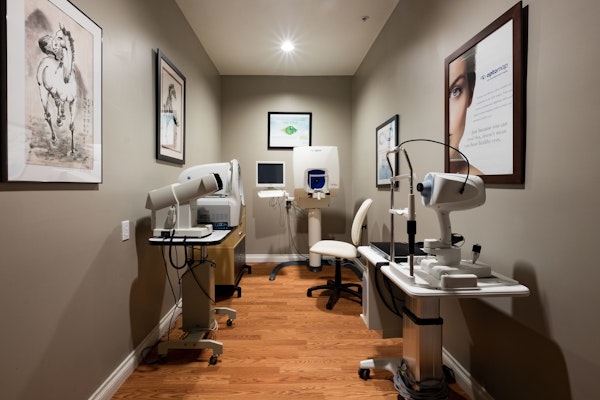Why Might I Need a Cornea Transplant?
 A cornea transplant, also known as keratoplasty, is a surgical procedure in which a surgeon replaces a damaged or diseased cornea with a healthy donor cornea. At GW Eye Associates, serving La Jolla, Carmel Valley, and San Diego, CA, we discuss why patients might need a cornea transplant. Our optometrists, Dr. Gordon Wong and Dr. Wildon Wong, can diagnose eye conditions, recommend the appropriate eye care procedures, and offer co-management of eye surgeries. Read on to learn the common reasons for a cornea transplant.
A cornea transplant, also known as keratoplasty, is a surgical procedure in which a surgeon replaces a damaged or diseased cornea with a healthy donor cornea. At GW Eye Associates, serving La Jolla, Carmel Valley, and San Diego, CA, we discuss why patients might need a cornea transplant. Our optometrists, Dr. Gordon Wong and Dr. Wildon Wong, can diagnose eye conditions, recommend the appropriate eye care procedures, and offer co-management of eye surgeries. Read on to learn the common reasons for a cornea transplant.
Keratoconus
Keratoconus is a serious eye condition in which the cornea thins and bulges into a cone shape. This can cause visual impairment, distortion, and irregular astigmatism. If keratoconus progresses to an advanced stage, scarring or acute hydrops (sudden corneal swelling) occurs, or glasses or contact lenses are no longer effective, you may wish to undergo a cornea transplant.
To treat keratoconus, eye surgeons typically perform the penetrating keratoplasty (PKP); in this procedure, the entire cornea is replaced with a donor cornea. For some patients, a deep anterior lamellar keratoplasty (DALK) may be performed; this involves replacing just the outer layers of the cornea, allowing surgeons to leave the patient's endothelium intact.
Corneal Scarring
Corneal scarring can occur as a result of infection, injury, or corneal disease. If a patient has severe corneal scarring, it may significantly affect their vision and quality of life. In these cases, a cornea transplant may be the best way to restore vision.
Corneal Infections
Corneal infections can lead to damage to the protective, outer covering of the eye. A single infection or recurrent infections can result in scarring or other damage to the cornea. Some of the types of infections that can affect the cornea include bacterial and fungal keratitis. For some patients, a cornea transplant can eliminate the infection and improve vision.
Because infections can have such serious consequences, it is important that patients practice good habits to maintain the health of their eyes. If you wear contacts, make sure to follow your optometrist’s instructions on how often they need to be removed, cleaned, and replaced. In addition, avoid rubbing or scratching at the eyes; touching the eyes with your hands can increase the risk of infection.
Corneal Injuries
There are many types of corneal injuries that can occur. If the surface of the cornea is scratched or penetrated, it can increase the risk of infections and scarring. Corneal injuries can occur at any time. For example, they can result from car accidents, sporting injuries, or simply from rubbing at the eyes in an attempt to remove a foreign object such as a grain of sand.
Other Corneal Problems
There are many other corneal problems and diseases that can lead to the need for a cornea transplant. Fuchs' endothelial corneal dystrophy, lattice dystrophy, macular corneal dystrophy, endothelial dysfunction, and corneal swelling are all conditions that can result in the need for a cornea transplant.
Contact GW Eye Associates
Contact GW Eye Associates today to request an appointment for an eye exam. We can fit you with glasses or contact lenses to improve your vision if you have a corneal condition, and we can help you determine if surgery is the best option.









